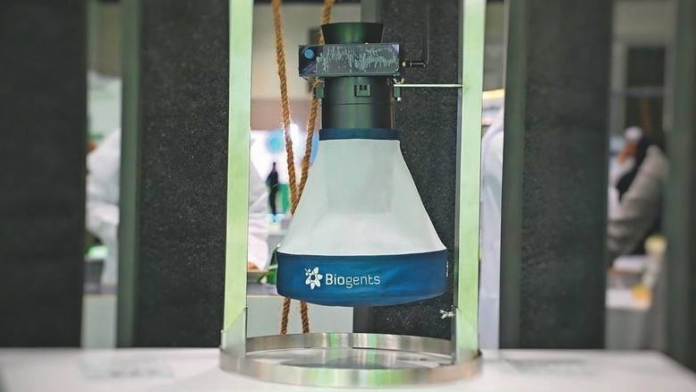Tadweer has developed an effective, efficient and sustainable way to trap mosquitoes.
More than 400 solar-powered smart traps will be installed across the country from February 1 to catch mosquitoes and thus keep a check on the outbreak of diseases like malaria, dengue, Yellow Fever and West Nile Virus, an official from Abu Dhabi Waste Management Centre (Tadweer) said.
To ensure a disease-free environment for residents, Tadweer has developed an effective, efficient and sustainable way to trap mosquitoes.
“During the rainy and winter season, we have a huge number of stagnant water pockets. The breeding places of mosquitoes increase and hence the chances of diseases. The Abu Dhabi government has bought 440 traps – the biggest number purchased globally by any government entity. We are not waiting for people to fall sick. We are bringing this system to protect people and improve the quality of life.
The Smart Mosquito Trap, like humans, release carbon dioxide and will attract mosquitoes and then suck them into the trap. It will be connected to our control rooms, enabling us to control through computers or mobiles,” Mohamed Al Marzouqi, project director, told Khaleej Times.
‘First alert to tackle situation’
Apart from trapping, through a web application and GPS location, Tadweer can manage the mosquito traps, gain insights into daily patterns, density, population etc. Traps are all connected through one database and help in the analysis and possibly detect the spread of any diseases.
“The data collected will enable us to know which breed of mosquitoes is found in a particular area. There are mosquitoes found in wastewater and other types that are common in freshwater. The data will provide us the real activity time. It may be that a high percentage of mosquitoes is there during day time or evening hours. We will know more in detail once we deploy these smart traps.”
The data, he said, is ‘first alert’ for Tadweer to proactively tackle a situation. “The system will give a full count on the number of mosquitoes trapped. Whenever a mosquito is caught, it will send an alert which is 99 per cent correct, i.e. if 185 mosquitoes are caught, it will be off the mark by one or two mosquitoes,” Al Marzouqi said.
Efficient use of staff, pesticide
With the collected data, Tadweer hopes to make efficient use of its 1,670 staff engaged in pest control and save 80 per cent of pesticide used in the field. “Once data is collected, we can send our pest control team during those particular hours.
This will also help to minimise the quantity of pesticide used. The management and operations cost will be less.”
The trap was tested for a year and will now be deployed across the emirates. The trap is designed and manufactured by Germany-based Biogents, whereas the counter in the US.
“This trap is optimised for our environment. This can be fixed at industrial, residential areas and farms.” The traps can be made available for public useat a cost of Dh15,000 each.



